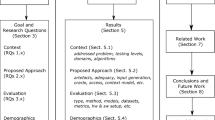Abstract
The AI methodology of qualitative reasoning furnishes useful tools to scientists and engineers who need to deal with incomplete system knowledge during design, analysis, or diagnosis tasks. Qualitative simulators have a theoretical soundness guarantee; they cannot “overlook” any concrete equation implied by their input. On the other hand, the basic qualitative simulation algorithms have been shown to suffer from the incompleteness problem; they may allow non-solutions of the input equation to appear in their output. The question of whether a simulator with purely qualitative input which never predicts spurious behaviors can ever be achieved by adding new filters to the existing algorithm has remained unanswered. In this paper, we show that, if such a “sound and complete” simulator exists, it will have to be able to handle numerical distinctions with such a high precision that it must contain a component that would better be called a “quantitative”, rather than “qualitative” reasoner. This is due to the ability of the “pure” qualitative format to allow the exact representation of the members of a rich set of numbers.
Similar content being viewed by others
References
D. Berleant and B. Kuipers, Qualitative and quantitative simulation: Bridging the gap, Artificial Intelligence 95 (1997) 215–255.
K.D. Forbus, Qualitative physics: Past, present and future, in: Readings in Qualitative Reasoning About Physical Systems, eds. D.S. Weld and J. de Kleer (Morgan Kaufmann, San Mateo, CA, 1990) pp. 11–39.
P. Fouché and B.J. Kuipers, Reasoning about energy in qualitative simulation, IEEE Transactions on Systems, Man, and Cybernetics 22 (1992) 47–63.
T. Könik and A.C.C. Say, Extracting and using relative duration information in pure qualitative simulation, in: Qualitative Reasoning: The Twelfth International Workshop, AAAI Technical Report WS–98–01 (AAAI Press, Menlo Park, CA, 1998) pp. 155–160.
B.J. Kuipers, Qualitative simulation, Artificial Intelligence 29 (1986) 289–338.
B.J. Kuipers, Qualitative Reasoning: Modeling and Simulation with Incomplete Knowledge (MIT Press, 1994).
W.W. Lee and B.J. Kuipers, Non-intersection of trajectories in qualitative phase space: A global constraint for qualitative simulation, in: Proceedings of the National Conference on Artificial Intelligence (AAAI-88) (Morgan Kaufmann, San Mateo, CA, 1988).
A.C.C. Say, L'Hôpital's filter for QSIM, IEEE Transactions on Pattern Analysis and Machine Intelligence 20 (1998) 1–8.
A.C.C. Say, Improved infinity filtering in qualitative simulation, in: Qualitative Reasoning: The Twelfth International Workshop, AAAI Technical Report WS–98–01 (AAAI Press, Menlo Park, CA, 1998) pp. 106–113.
P. Struss, Problems of interval-based qualitative reasoning, in: Readings in Qualitative Reasoning About Physical Systems, eds. D.S. Weld and J. de Kleer (Morgan Kaufmann, San Mateo, CA, 1990) pp. 288–305.
D.S. Weld and J. de Kleer (eds.), Readings in Qualitative Reasoning About Physical Systems (Morgan Kaufmann, San Mateo, CA, 1990).
D.S. Weld and J. de Kleer, Qualitative physics: A personal view, in: Readings in Qualitative Reasoning About Physical Systems, eds. D.S. Weld and J. de Kleer (Morgan Kaufmann, San Mateo, CA, 1990) pp. 1–8.
B.C. Williams, A theory of interactions: Unifying qualitative and quantitative algebraic reasoning, Artificial Intelligence 51 (1991) 39–94.
Author information
Authors and Affiliations
Rights and permissions
About this article
Cite this article
Cem Say, A. Sound and Complete Qualitative Simulation Needs “Quantitative” Filtering. Annals of Mathematics and Artificial Intelligence 38, 257–267 (2003). https://doi.org/10.1023/A:1023032825973
Issue Date:
DOI: https://doi.org/10.1023/A:1023032825973




